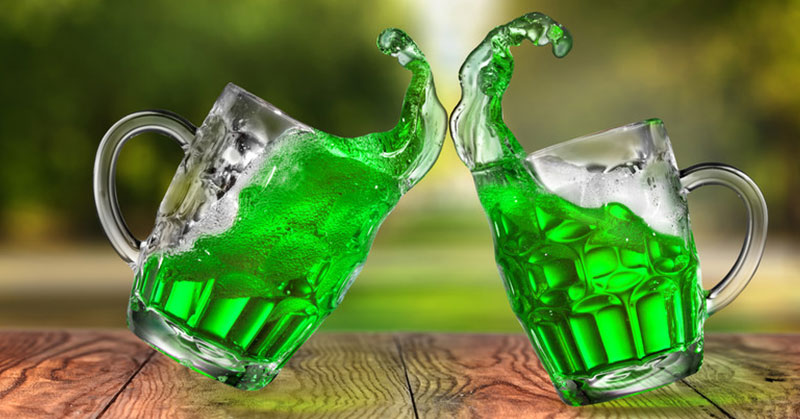There’s an old saying that everyone is Irish on St. Patrick’s Day. And that may be true in some ways because whether you’re Irish or not, a lot of people enjoy the celebrations that go along with this holiday. This occasion also provides a good opportunity to delve a little deeper into how some St. Paddy’s day traditions can affect your oral health. Indulging in these for a single day won’t make much of a difference, but you should exercise some caution if you partake in these celebratory habits too often!
The Irish are known for their love of spirits, and bars throughout the US typically offer patrons green beer in celebration of the Irish holiday. A pint or two on March 17th won’t have a negative impact on your oral health, but if you consume beer on a regular basis, it might. In fact, all types of alcohol can negatively affect your oral health if you consume too much. Here’s how:
- Tooth decay: Although it may not taste like it, beer – along with other forms of alcohol – contains an impressive amount of sugar, and that can increase your risk of developing tooth decay.
- Weakened enamel: The acidity of alcoholic drinks weakens the enamel layer of your teeth. And once your enamel is gone, it doesn’t come back. Loss of enamel can lead to yellowing of the teeth, receding gums, and sensitivity to hot and cold foods and beverages.
- Stained teeth: Although the green food coloring used in St. Paddy’s Day brews won’t stain your teeth, the color of the compounds contained in the beer itself (chromogens) actually do stain teeth. For all these reasons, it’s a good idea to brush your teeth after imbibing beer – green or not.
- Gum disease: Alcohol contains sugar, and when that sugar interacts with the bacteria that already exists inside your mouth, plaque forms. Plaque, if not removed, turns into an even harder substance called tartar. And tartar buildup often leads to gum disease. If you’re suffering from gum disease, you’ll likely notice that your gums are red or pink in color, swollen, sensitive, and/or receding or pulling away from the tooth surface. Gum disease can lead to tooth loss if it’s not treated. Worse still, gum disease has been linked to other more serious health conditions, such as diabetes, heart disease and even Alzheimer’s.
Now, here’s the good news. All of these problems can be easily avoided in the first place. Just remember to avoid over-indulging in alcohol too often. And when you do – such as might be the case on St. Patrick’s Day – try to drink a glass of water between your alcoholic drinks, and brush and floss as soon as you get home. As is the case with almost everything in life, moderation is the key to maintaining good oral health and still enjoying the celebration.


